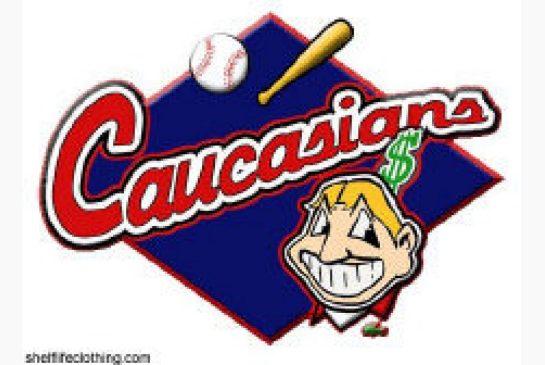
Brutal Branding: Problem or Not?
In the various sports leagues of North America, several teams have used variations of Native people as their logos, team names, and mascots. Teams such as the Washington Redskins, Cleveland Indians, Chicago Blackhawks, Atlanta Braves, and Edmonton Eskimos formulate their whole team identity around stereotypical First Nations ideas or people.
To those who are fans of these teams, it may be hard to see such a beloved and traditional name have to go. They likely grew up celebrating that team, and to give it a whole new identity and face that much change can be a hard thing to do. Beyond that, teams will have to spend lots of money, millions upon millions of dollars, in order to rebrand their teams. However, this is a cost that must be paid in order to satisfy offended people and make amends in the name of reconciliation.
The First Nations people have a mixed opinion surrounding these team names, with some stating their clear opposition, others supporting it, and some simply being apathetic. A Washington Redskins ad shows Natives being okay with the name, but a similar video displays the opposite. Not to mention, poet Winona Linn has a slam poem focusing on the topic of Native stereotypes, and she directly mentions the Indians logo “Chief Wahoo”, proving that those logos and team names are prominent in the minds of Natives, and shouldn’t be so easily dismissed.
If you’re not really a sports fan and don’t pay attention to that team or league, then it should be less impactful. “Out of sight, out of mind” as they say. Yet, even many non-Native people recognize the offensiveness of these team names and logos, most notably the Redskins name or Cleveland Indians logo. Some teams attempt to justify their branding, like the Redskins with saying it honours and respects the Natives, and the Indians with using their logos less. Not to mention, some broadcasters only refer to these teams as their home city now. However, people aren’t buying it. They want proper justice.
At the end of the day, it’s much easier to change the team identity than to have to face so much controversy and hate from rightfully offended people. In fact, despite the high costs and possible fan-base disappointment, changing the teams now is a smart move, as they would no longer have people leaving or avoiding being fans or supporters of that team. All in all, if the leagues were to pitch in some money to help change the branding of these teams, and fans realized they could be the first fans of a new era for their team, then everyone could be happy and be quiet about these pointless sports teams. It’s a smart choice for everyone.
Notte, Jason. “Cleveland Indians Keep Racist Mascot Because of Money.” MarketWatch, 29 Oct. 2016, www.marketwatch.com/story/cleveland-indians-keep-racist-mascot-because-of-money-2016-10-28.
Bogart, Nicole. “Should the Cleveland Indians Change Their Name? A History of Protest over Chief Wahoo.” Global News, 12 Oct. 2016, globalnews.ca/news/2998193/should-the-cleveland-indians-change-their-name-a-history-of-protest-over-chief-wahoo/
PoetrySlamVancouver. “Winona Linn – Knock-Off Native.” YouTube, YouTube, 30 Jan. 2013, www.youtube.com/watch?v=i_zFOsd_pqA.
watchcut. “Redskin | Native Americans | One Word.” YouTube, YouTube, 24 Nov. 2015, www.youtube.com/watch?v=M8r8cQNpWt4.
Complexmagazine. “90% of Native Americans Not Offended by Redskins’ Team Name.” YouTube, YouTube, 19 May 2016, www.youtube.com/watch?v=XlDhp82RY34.